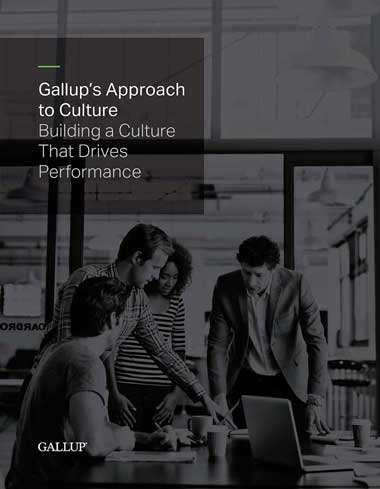Story Highlights
- Remote work has escalated the need for a strong ethical culture
- Transparency and a robust compliance program can differentiate an organization
- Collaborative relationships can reinforce a culture of compliance
BBVA, the $34.6 billion market-cap Spanish bank, was an early digital banking leader. That extreme head start on digitalization put BBVA in good stead when COVID-19 lockdowns sent most employees home. Indeed, the use of new technologies in banking is a trend that has accelerated during the pandemic, and BBVA's global and profound transformation has given the bank a competitive advantage: Customer transactions through digital channels have more than doubled in the past two years, while digital sales now represent nearly 70% of total sales.
BBVA also knows that flexible work is here to stay -- and that it will challenge compliance in financial services. "Technology helped us keep up, but it also opens new risks related to compliance," says Rocio Perez Mies, head of compliance at BBVA.
The Principles of Compliance
For Perez Mies, compliance isn't just a contingency mechanism to make sure people do the right thing regardless of the situation. "Compliance goes beyond a relationship between bank and employee," she says. "For us, it's about the relationship we have with each other, with our clients, our suppliers and society as a whole."
That approach differentiates BBVA in a hypercompetitive industry. Beyond the potential for richer client relationships, customers -- younger generations, in particular -- take organizations' societal impact and mission very seriously, and customers are increasingly motivated by non-purely financial metrics when selecting a bank.
Yet, in financial services, compliance metrics typically focus on regulatory and security measures. Perez Mies says that view fails to account for the gray areas in which employees make decisions. Those gray areas can have a significant impact on business outcomes -- so the challenge, but also the opportunity, is to include them in the compliance model, as leaders have done at BBVA.
Perez Mies believes BBVA's compliance strategy aligns with the human-focused, culture-oriented compliance model developed by Gallup. BBVA's head of compliance agrees with the relevance of Gallup's key principles (training, customers, the role of leaders, managers and employees, managing the pressure to deliver, and a culture of ethics) in the foundation of any company's compliance culture.
"You don't wake up thinking about ethical cases; they just happen," she says. "So our culture must ensure that acting with integrity is the routine."
BBVA does so by backing employees who behave ethically, and it reinforces the message with candid communication, training, channels and tools for consultation "so that people acknowledge risks and conflict of interests can appear any time and if so, they have a clear guidance on how to proceed or, in case of doubt, they know who to turn to, looking for support," Perez Mies says.
"That's precisely our aim at Compliance at BBVA; we work to give employees a clear guidance on how to act in every situation that may arise," she adds.
"Normalizing doubt," as Perez Mies puts it, is a critical element of that culture.
Beyond bridging the gap between policy and practice -- particularly important for remote workers facing situations for which there is no clear regulation -- normalizing doubt reinforces a collaborative relationship between the compliance department and employees. "So when you find yourself in the middle of a questionable issue, you raise your hand," Perez Mies says. "We want to normalize that doubt. It is healthy to doubt, logical to doubt, based on your unique situation as an employee and your relationships."
Nonfinancial Reporting and ESGs Are Here to Stay
As a result, BBVA employees' behavior is recalibrated toward compliance, which sets BBVA apart. Though financial metrics will continue to demonstrate organizational performance, standard security measures and know-your-customer requirements don't differentiate a bank, Perez Mies says. Differentiation rises from culture, and that culture must be authentic to the customer and employee experience to set a brand apart.
"So when you find yourself in the middle of a questionable issue, you raise your hand. We want to normalize that doubt. It is healthy to doubt, logical to doubt, based on your unique situation as an employee and your relationships."
Such differentiation is increasingly valuable as customers, employees and investors demand more transparency from ESGs and nonfinancial reporting. A market that puts integrity first doesn't merely assess it along with financial performance -- it includes ESG criteria in the decision-making process. This market is so large that Perez Mies thinks compliance transparency metrics will become standardized.
"This goes back to the point of understanding the role of compliance," she says. "The market already wants more than traditional financial performance metrics. It wants tangible metrics and certifications around integrity as a critical part of all businesses. Any bank can speak about how many clients it has acquired, but customers want to know if you've been transparent and ethical in the process."
BBVA's approach to compliance mirrors its approach to digitalization: It's best for customers, best for business and best for the brand. That mentality made BBVA an early digital banking leader and a massively valuable brand, as its financials demonstrate.
Of course, financials are easier to measure than compliance -- even though ethical missteps can cost more in customer trust and brand reputation than a bad quarter will -- and compliance often depends on what employees choose not to do, which can't be measured at all.
A Culture of Compliance Removes Doubt
For that reason, hard-control mechanisms are insufficient. A hybrid approach that understands and directs human behavior, underscored by policies and processes that make "doing the right thing" routine, is a far more effective approach. "Don't take anything for granted," Perez Mies says, "because ethical issues aren't just about bad behavior."
BBVA's approach to compliance mirrors its approach to digitalization: It's best for customers, best for business and best for the brand.
That's especially true among remote workers, who perhaps have more reason to "raise their hands" than do employees in an office environment fortified by internal security measures.
Still, in an ever-changing and highly competitive world, as the definition of compliance evolves at the same frantic pace as that which it aims to regulate, a culture of openness and transparency removes doubt in any environment. And compliance plays a very different role.
Not a regulatory one, not a punitive one, and certainly not a begrudging one. Compliance will play an asset value role. And because BBVA perceived the value of compliance early, just as it did with digitalization, the banking leader is already capitalizing on it.
Create a culture that makes it easy to do the right thing:
- Discover how to reimagine your organization's identity and engagement.
- Download Gallup's Approach to Culture: Building a Culture That Drives Performance to see how culture affects performance.
- Learn what causes a toxic culture.






